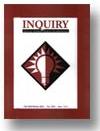When using critical thinking in decision-making, it is important to keep in mind the concept of relevance. Part of a manager's job is to take into account the views and opinions expressed by the public and the staff working for him or her. In order to make good decisions based off of knowledge obtained from sources other than the individual, a manager should understand whether or not certain information is fallacious. This also pertains to decision-making concerning staff and business-related arguments. An argument is logically fallacious when the argument contains a mistake in reasoning (Bassham, G, Irwin, W, Nordone, H, & Wallace, J). This can be tough to do because while an argument can be fallacious, it may still seem logical. Outlined within this paper are three specific examples of logical fallacies that represent the types of arguments a manager may be presented within an organization.
A personal attack fallacy, also known as ad hominem, is one that rejects someone's argument by merely attacking the individual personally rather than his or her actual argument (Bassham, et al).
For example, two staff members in a child care approach their supervisor with an argument they are having. Teacher number one states that while both staff members work in the same classroom and share the same hours, she feels that she is not given the same credit as the other teacher during parent-teacher conferences. She states that the teacher number two talks the entire time and does not allow her to give input or answer questions from the families. Teacher number two tells the supervisor that teacher number one is very juvenile and does not talk much to the children during the day; therefore, she feels that teacher number one does not have a good argument against her. This is an example of...


